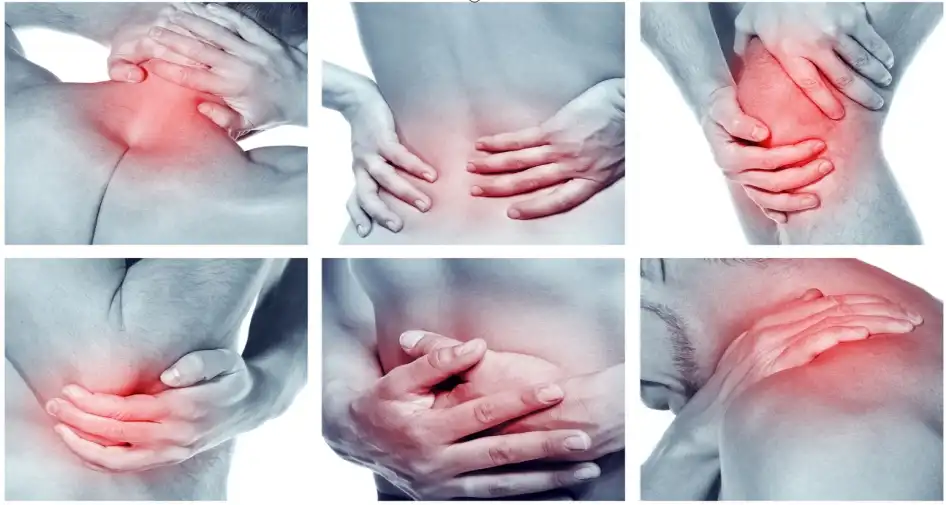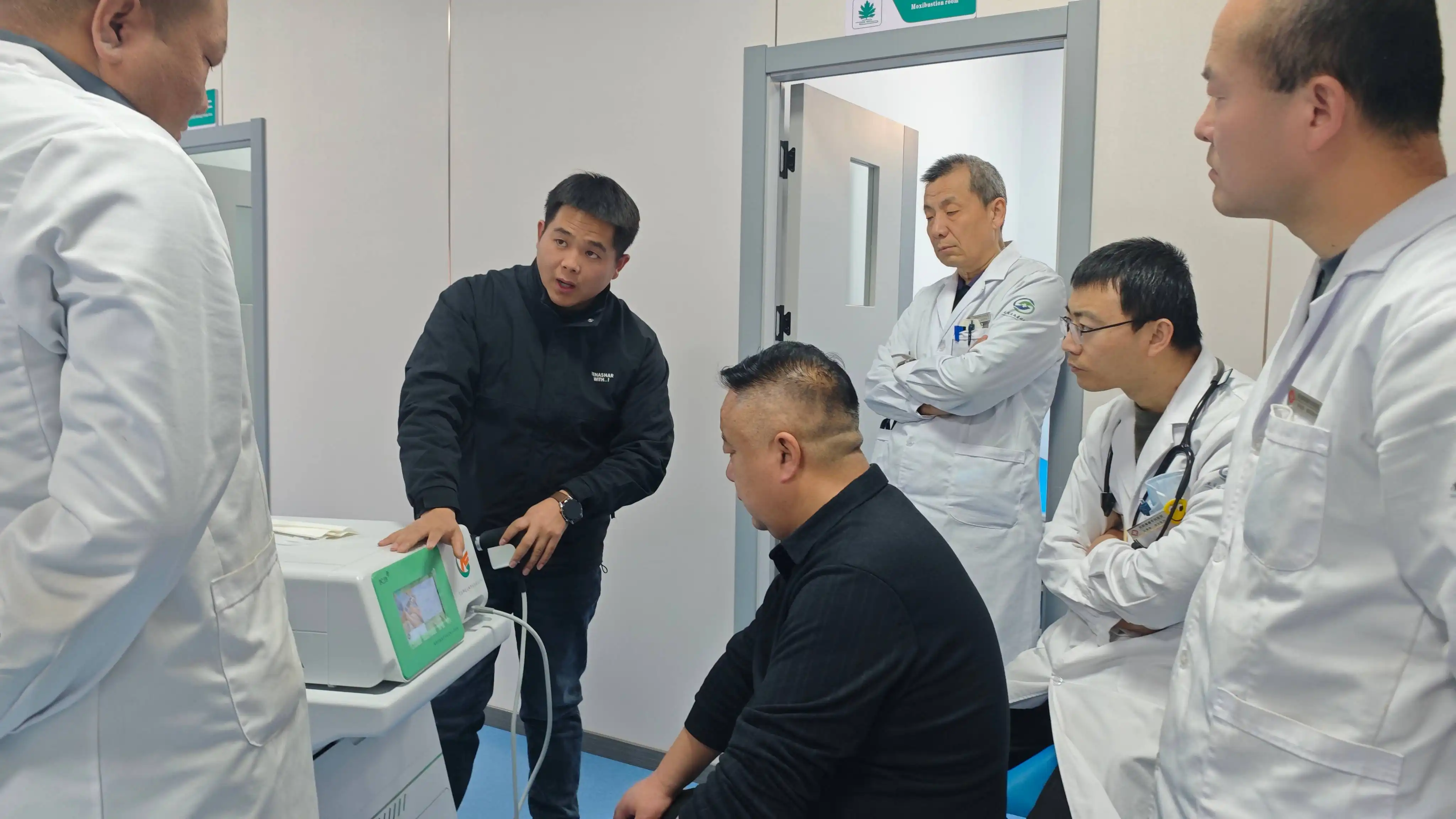Shockwave therapy has emerged as a popular non-invasive treatment option for a variety of musculoskeletal conditions, offering hope for pain relief and improved function. However, like any medical intervention, it is not suitable for everyone. In this blog post, we will explore who should avoid shockwave therapy, with a particular focus on the physical shockwave therapy machine.

Understanding Shockwave Therapy and the Physical shockwave therapy machine
Shockwave therapy involves the use of high-energy sound waves to stimulate healing in the body. The Physical shockwave therapy machine emits these shockwaves, which can be directed to specific areas of the body. These shockwaves create a mechanical effect, causing micro-trauma to the tissue. This micro-trauma then triggers the body's natural healing response, promoting the growth of new blood vessels, the release of growth factors, and the breakdown of scar tissue. It has been used to treat conditions such as plantar fasciitis, tennis elbow, and calcific tendonitis, among others.
Medical Conditions that Contraindicate Shockwave Therapy
Severe Cardiovascular Diseases
Patients with severe heart failure should avoid shockwave therapy. The physical shockwave therapy machine's shockwaves can cause a temporary increase in blood pressure and heart rate. In individuals with compromised heart function, this additional stress on the cardiovascular system can be extremely dangerous, potentially leading to heart failure exacerbation, arrhythmias, or even cardiac arrest.
Similarly, those with uncontrolled hypertension are at risk. The sudden increase in blood pressure induced by shockwave treatment can cause a hypertensive crisis. This can result in damage to blood vessels, including those in the brain, leading to strokes, or in the eyes, causing vision problems.
Blood Clotting Disorders
For patients with hemophilia or other bleeding disorders, shockwave therapy is not advisable. The shockwaves can cause micro-bleeding in the treated tissue. In individuals with impaired blood clotting mechanisms, this can lead to excessive bleeding, hematomas, or other bleeding complications. Even in milder clotting disorders such as von Willebrand disease, the risk of bleeding events during shockwave therapy is significantly increased.
Tumors and Cancer
Shockwave therapy should never be used on patients with malignant tumors. The shockwaves can potentially stimulate the growth and spread of cancer cells. The physical shockwave therapy machine's energy can disrupt the tumor microenvironment, leading to angiogenesis (the formation of new blood vessels that tumors need to grow and metastasize). In addition, the mechanical stress from the shockwaves may cause tumor cells to break away and spread to other parts of the body through the bloodstream or lymphatic system.
Patients with benign tumors in sensitive areas, such as tumors near major blood vessels or nerves, should also avoid shockwave treatment. The shockwaves can cause the tumor to expand or shift, potentially compressing vital structures and causing further damage.
Infections and Inflammatory Conditions
In the case of acute infections, whether bacterial, viral, or fungal, shockwave therapy is contraindicated. The shockwaves can exacerbate the inflammatory response, leading to increased pain, swelling, and redness. In addition, they can spread the infection to surrounding tissues. For example, if a patient has an acute skin infection like cellulitis, using the Physical shockwave therapy machine on the affected area can cause the bacteria to spread more rapidly, making the condition worse.
Patients with chronic inflammatory diseases such as rheumatoid arthritis or lupus, especially when the disease is in an active flare-up, should avoid shockwave treatment. The shockwaves can interfere with the body's immune response, potentially worsening the underlying disease and increasing inflammation throughout the body.
Physical Conditions that Preclude Shockwave Therapy
Pregnancy
Pregnancy is a clear contraindication for shockwave therapy. The shockwaves emitted by the Physical shockwave therapy machine can potentially harm the developing fetus. The energy from the shockwaves can disrupt fetal development, especially in the early stages of pregnancy when the organs are forming. There is also a risk of inducing uterine contractions, which can lead to miscarriage or premature labor.
Lactation
During lactation, shockwave therapy is not recommended. There is a concern that the shockwaves may affect the quality and composition of breast milk. Additionally, the treatment can cause discomfort to the mother, which may interfere with breastfeeding. The physical stress of the shockwaves on the breast tissue can also potentially lead to breast engorgement or other breastfeeding difficulties.
Skin and Soft Tissue Conditions
Individuals with open wounds should not undergo shockwave therapy. The open wound provides a direct pathway for bacteria to enter the body, and the shockwaves can further disrupt the wound healing process. The physical shockwave therapy machine can cause additional trauma to the fragile tissue around the wound, increasing the risk of infection and delaying wound closure.
Patients with active skin infections, such as boils, abscesses, or fungal infections, should also avoid shockwave treatment. The shockwaves can spread the infection, making it more difficult to treat and increasing the risk of complications.
Bone and Joint Abnormalities
In the case of acute fractures, shockwave therapy is not appropriate. The shockwaves can disrupt the normal healing process of the fracture. The body's natural response to a fracture involves the formation of a callus, which is essential for bone repair. The shockwaves from the Physical shockwave therapy machine can interfere with this callus formation, leading to delayed union or non-union of the fracture.
Patients with severe osteoporosis are also at risk. The shockwaves can cause damage to the already fragile bones, increasing the risk of fractures. Osteoporotic bones are more likely to break under the mechanical stress of the shockwaves, and the healing process may be impaired due to the underlying bone condition.
Allergies and Sensitivities
Allergy to Treatment Components
Some individuals may be allergic to components of the Physical shockwave therapy machine or the accessories used during treatment. For example, the coupling gel that is used to transmit the shockwaves effectively from the machine to the body may contain ingredients that can cause allergic reactions. Symptoms of an allergic reaction can range from mild skin rashes and itching to severe anaphylactic shock, which can be life-threatening.
Sensitivity to Shockwaves
Psychological sensitivity to shockwaves can also be a reason to avoid treatment. Some patients may experience extreme anxiety or fear during the procedure, which can not only make the treatment uncomfortable but also potentially affect the outcome. The body's stress response to this anxiety can interfere with the natural healing process that the shockwaves are intended to stimulate.
Physically, some individuals may be hypersensitive to the shockwaves. They may experience excessive pain or discomfort during the treatment, even at the lowest intensity settings. This can make it difficult to tolerate the treatment and may also lead to adverse effects such as muscle spasms or increased inflammation in the treated area.

Shaanxi Miaokang Medical Technology Co., Ltd had R&d and produce physical shockwave therapy machine
is a comprehensive integrator engaged in medical instrument research and development, sales, medical technology research and promotion, and investment in medical institutions. The main research and development of medical ozone therapy equipment, extracorporeal shock wave therapy equipment and other products.
If you had any questions,feel free to contact us:Cathy@miaokang.ltd
Conclusion
While shockwave therapy, delivered by the Physical shockwave therapy machine, can be a highly effective treatment for many musculoskeletal conditions, it is crucial to be aware of its contraindications. Patients with certain medical conditions, physical states, or allergies and sensitivities should avoid this treatment to prevent potential harm. If you are considering shockwave therapy, it is essential to consult with a qualified healthcare professional who can assess your individual situation and determine whether this treatment is right for you.
For any further inquiries, you can reach out to me at [your_email@example.com]. This blog post is based on current medical knowledge and research in the field of shockwave therapy.






